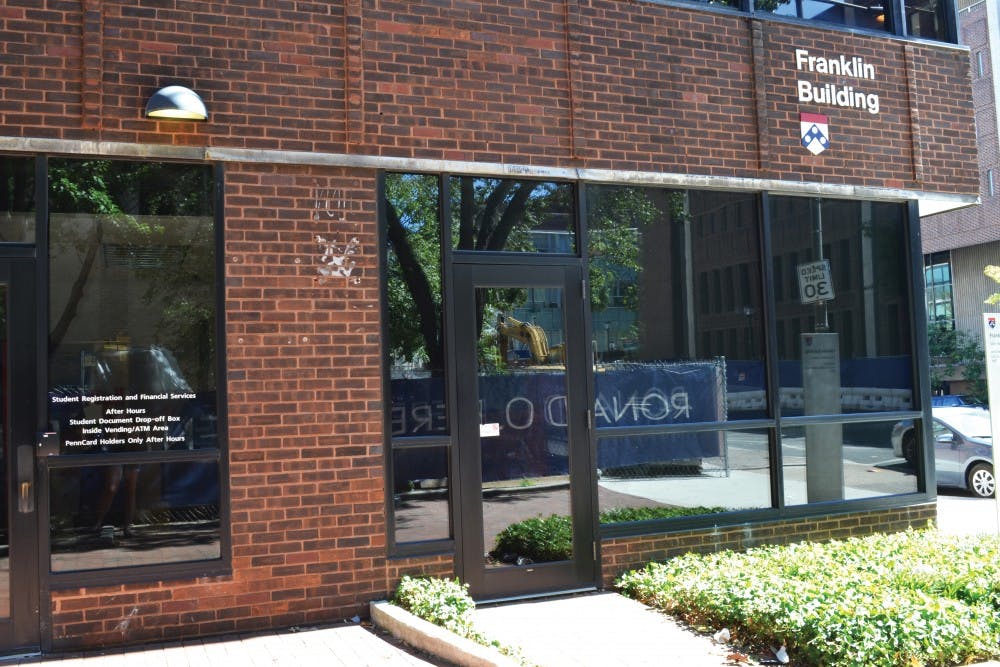
Imagine checking your email on the second day of classes and discovering that you would not receive the loan you had applied for — even though it had already been approved.
Multiple graduate students in the School of Nursing were advised to apply for federal direct loans of up to $20,500 for the spring and summer semesters of 2017, and their applications were approved.
But at the beginning of this spring semester, these students received emails from Student Registration and Financial Services saying they would need to apply for an alternative loan, as their direct loans would be discontinued for the spring semester.
SRFS blames the abrupt shift in policy on the Department of Education, but some students suspect Penn’s financial aid officers made the mistake.
In a Jan. 12 email, SRFS announced the policy change, which requires students who used an unsubsidized direct loan to fund their education in fall 2016 to now use an alternate source of funding, such as a direct PLUS loan.
Though SRFS characterized the PLUS loan as a “solid” alternative, it actually has a “slightly higher origination fee” and a higher interest rate than normal direct loans — 6.31 percent compared to 5.31 percent.
Nursing graduate student Cara Gouldey said she searched online for a Department of Education policy change regarding direct loans but could find none.
“If this was a change, why were we notified on the second day of class, and why can’t we seem to find any information about systemic changes from the Department of Education?” she asked. “It seems to us like maybe it was something that Penn missed or that they had been doing wrong.”
Gouldey, who is pursuing her third degree and has been in school since 2000, has experience dealing with student loans and said she had never encountered such a situation before.
“I just feel like if it was this overreaching thing that was coming top-down from the Department of Education, I don’t understand why we can’t just be provided with some simple web link or a document that [SRFS] received,” she said.
Gouldey reached out to SRFS, hoping for a clear explanation for the sudden change.
“I just really was curious about why the change was so abrupt, and to get more information about it for going forward,” she said.
She emailed University Director of Financial Aid Elaine Papas Varas on Jan. 13 asking for a clarification of the policy. Varas responded two days later asking to set up a time to meet, to which Gouldey responded with her availability. On Feb. 6, still without a meeting scheduled, Gouldey said she was still unclear about the change in a follow-up email to Varas.
That email still has not been responded to as of Feb. 28, Gouldey told the DP.
“It’s kind of a big deal and it’s a lot of money, especially for graduate students,” Gouldey said. “We work, we have families. For us to scramble to find a loan really quickly and then the insult to injury of getting late fees for not having the loans in on time, that was pretty messed up.”
Nursing graduate student Erin Andrew was also told by the Nursing financial aid officers to borrow a direct loan but later received the same email as Gouldey from SRFS.
“Obviously, I was taken aback by what they had said,” Andrew said. “I didn’t understand it. They blamed it on the government.”
Andrew was charged $123 in late fees, which have since been waived.
Both Gouldey and Andrew now must use loans with higher interest rates than the direct loan.
Karen Hamilton, a spokesperson for SRFS, said in an email to the DP that the email the students received was “sent to a small number of (mostly graduate) students, after a Department of Education change with minimal impact to Penn students.”
Hamilton added that Penn’s graduate and professional programs “benefit from the successful administration of funds through the Federal Direct Student Loan program to help finance their education.”
Varas declined to further comment.
Dean of Admissions Eric Furda said he was unaware of the direct loan situation and noted the separation between the Office of Admissions and SRFS.
He said he could not speak in detail about financial aid matters, but added, “The federal government, with Direct Student Loans as an example, wields an incredible amount of resources, and then also, depending on where they put their priorities, a tremendous amount of persuasion.”
While Penn administrators attribute the sudden change to the federal government, Gouldey said she feels the University is not blameless.
“Universities have so much power in terms of having the upper hand in what they charge students and students really having no say in the cost of their education once they’re enrolled in a university,” she said. “So I think it really behooves them to be transparent about loans and about changes and things like that.”
The Daily Pennsylvanian is an independent, student-run newspaper. Please consider making a donation to support the coverage that shapes the University. Your generosity ensures a future of strong journalism at Penn.
Donate






